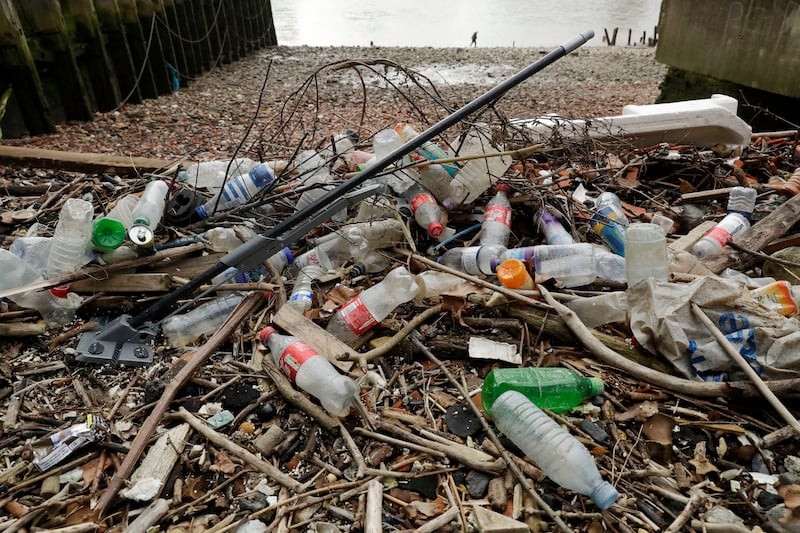(CN) — The United States was previously thought to be adequately managing its plastic waste. But a new study indicates that in fact the nation ranks in the top three countries contributing to coastal plastic pollution.
A previous study using data from 2010 had ranked the U.S. at 20th globally in its contribution to ocean plastic pollution from mismanaged waste. But a study published Friday in the journal Science Advances found the earlier research hadn’t taken into account the export of plastic scrap, which changed the numbers dramatically.
The new study, conducted by scientists from the Sea Education Association, DSM Environmental Services, the University of Georgia and the Ocean Conservancy, used global data gathered in 2016 — the most recent numbers available — and calculated that roughly half of all plastics collected for recycling — just under 2 million metric tons of the nearly 4 million metric tons collected — in the U.S. were shipped abroad.
Of this exported recyclable material, the study concluded that 88% of the material went to countries struggling to effectively manage, recycle or dispose of their own plastics. Further, the researchers estimated that between 15-25% was low-value or contaminated, meaning it was effectively unrecyclable. Taking these factors into account, the researchers estimated that up to 1 million metric tons of U.S.-generated plastic waste ended up polluting the environment beyond its borders.
“The United States generates the most plastic waste of any other country in the world, but rather than looking the problem in the eye, we have outsourced it to developing countries and become a top contributor to the ocean plastics crisis,” said study co-author Nick Mallos, senior director of Ocean Conservancy’s Trash Free Seas program, in a statement accompanying the study. “The solution has to start at home. We need to create less, by cutting out unnecessary single-use plastics; we need to create better, by developing innovative new ways to package and deliver goods; and where plastics are inevitable, we need to drastically improve our recycling rates.”
Researchers noted that although the United States accounted for just 4% of the global population in 2016, it generated 17% of all plastic waste. On average, Americans generated nearly twice as much plastic waste per capita as residents of the EU.
Further, the study estimates that between 0.91 and 1.25 million metric tons of plastic waste generated in the U.S. was either littered or illegally dumped within its borders. Combined with waste exports, this means the United States contributed up to 2.25 million metric tons of plastics into the environment.
Up to 1.5 million metric tons of all the plastic trash generated in the United States ended up in coastal environments (within 30 miles of a coastline), where proximity to the shore increases the likelihood of plastics entering the ocean by wind or through waterways.
“For some time, it has been cheaper for the United States to ship its recyclables abroad rather than handle them here at home, but that has come at great cost to our environment,” said study co-author Natalie Starr, principal at DSM Environmental Services, in the statement. “We need to change the math by investing in recycling technologies and collection programs, as well as accelerating research and development to improve the performance and drive down the costs of more sustainable plastics and packaging alternatives to address the current challenge.”
Dr. Jenna Jambeck, distinguished professor at the University of Georgia's College of Engineering and a co-author of the study, said their research is important to help individual countries assess their plastic input on the environment and their coastal areas.
"In the case of the United States, it is critically important that we examine our own backyard and take responsibility for our global plastic footprint,” Jambeck said in the statement.
Subscribe to Closing Arguments
Sign up for new weekly newsletter Closing Arguments to get the latest about ongoing trials, major litigation and hot cases and rulings in courthouses around the U.S. and the world.









